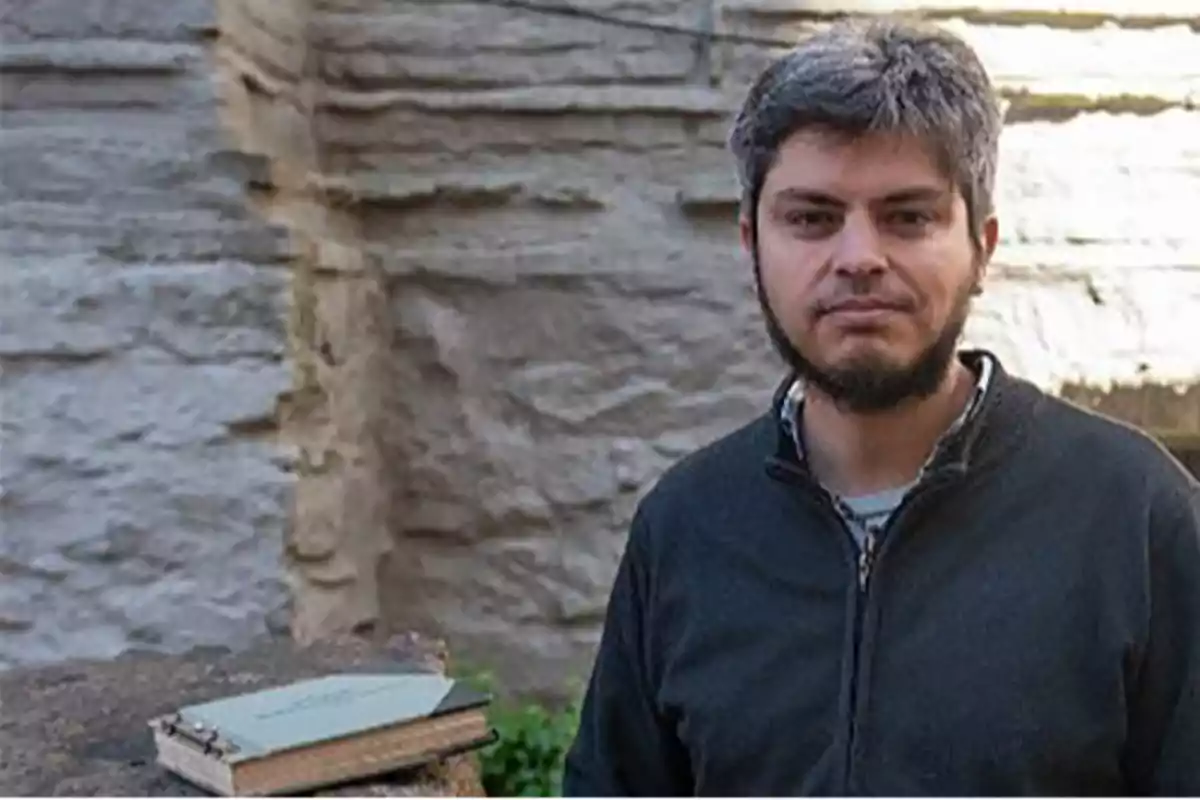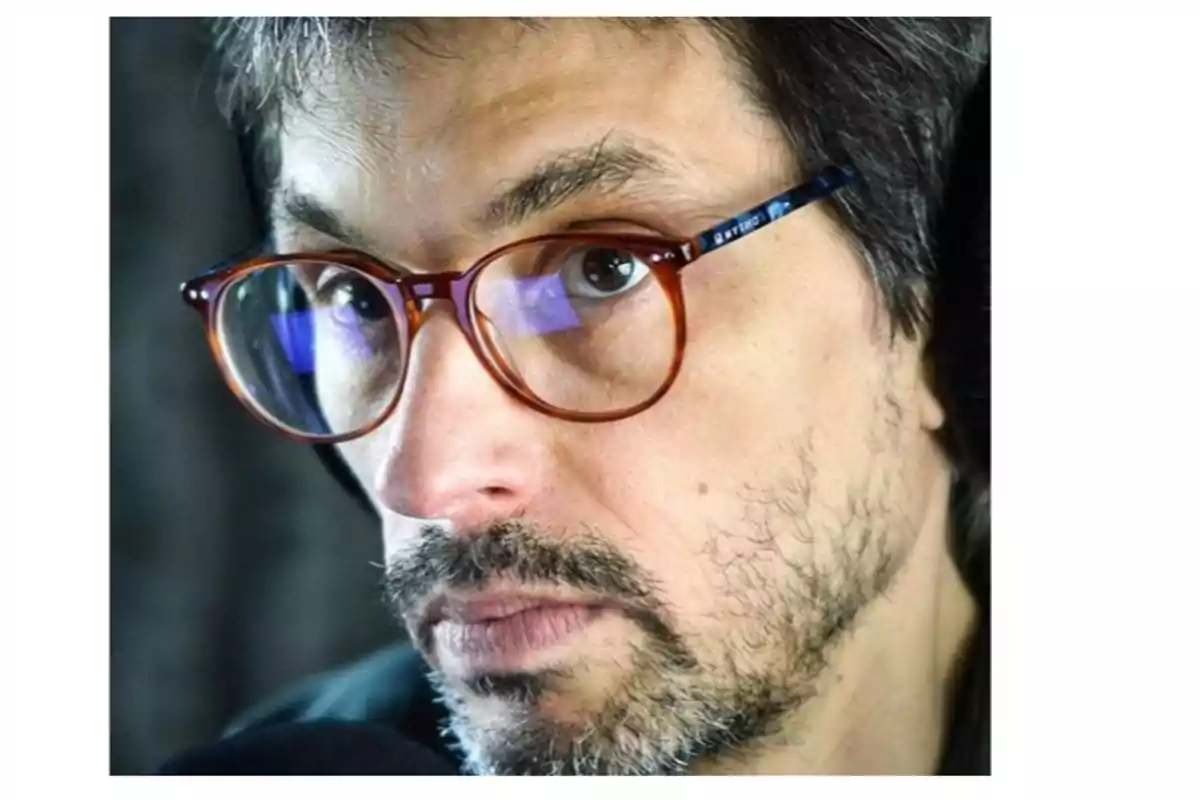
The failed journalist Nicolás Iglesias started crying over La Derecha Fest
Everything he doesn't like is 'hate speech'
These days, Nicolás Iglesias, who presents himself as a Social Worker, made a pseudo-analysis on the program "No Toquen Nada" about the Right Fest with the usual clichés of progressivism: "hate speech," "danger to democracy," "difficulty in reaching political consensus."
Thirty minutes of "analysis" where they didn't even bother to have any idea or their own criteria, but rather repeated like parrots, the global progressive cassette. A separate paragraph for Joel Rosenberg, who acted as an assistant pointer for the interviewee, far from what a neutral journalist should be, he poured all his prejudices into the note.
In a part of his speech at La Derecha Fest, Nicolas Marquez questioned the lukewarmness of the National Party and the "political center" and marked them as majorly responsible for the victory of the Broad Front. For Iglesias and Rosenberg, questioning the National Party and the Colorado Party is "endangering democracy." Questioning the lukewarmness and failure in the battle of ideas of the Republican Coalition is an attack on democracy for them. Something absurd.

Of course, the Broad Front won four of the last five National Elections, won all the Municipal ones in Montevideo since 1989, so the left has electoral and cultural dominance in Uruguay in this century, so what better than to continue like this.
For the status quo, the dominant centrism, the only thing that ensures democracy is that the Broad Front, National Party, and Colorado compete for power, in an ideological framework from the center to the left and then accept small parties competing, but without growing much and in an ideological framework similar to the three main parties, without questioning more than some specific politician (with whom the system agrees), but without questioning the core.
The left benefits from having a lukewarm, timid opposition that doesn't fight, that tries to adapt to the dominant, easily manipulated, it's much easier to beat them or complicate them being opposition when once in a while they have to lose as happened in the period from 2020 to 2025.

In that period precisely, despite being opposition, the Broad Front dominated the public agenda despite having lost and being a parliamentary minority, which based on lies or half-truths, allowed it to win again without much militancy effort as other times, but appealing to the usual clichés "insensitive government" "protect the vulnerable" "workers who lose," even when the data doesn't support this.
They are terrified that what is happening in Argentina will happen in Uruguay, every time they say "there will never be a Milei here," they are stating the obvious, Milei is unique and unrepeatable in Argentina and the World, what they fear is the Milei effect and that the "center" political loses strength as is happening in Argentina with what was Together for Change, which makes the consensus they love so much and the country of the tie difficult. For them, it's easier to reach consensus with easily manipulated rivals, concerned about appearances, about polls, than with a right with conviction and without fears.

The myth of "hate speech": how the left uses a cliché to silence opponents and has become the favorite club of progressivism to beat anyone who dares to dissent from their dogma. It's a phrase so worn out that it already sounds like white noise, but it remains effective because it appeals to emotion and not to reason.
Does the right hate? Like in any human group, there are people with blood in their veins, but labeling every criticism, every uncomfortable opinion, as "hate" is a masterstroke to avoid debate and paint the adversary as a monster.
First, let's dismantle the trick. "Hate speech" is not an objective concept; it's a subjective weapon. What for one is hate, for another is an uncomfortable truth. When the right points out, for example, the problems of uncontrolled immigration, it is not "hating" immigrants; it is putting legitimate data and concerns on the table.
But the left, instead of countering with numbers or ideas, plays the hate card: "Xenophobes!". End of discussion. It's easier to demonize than to debate, right? And so, any criticism of immigration policies, radical feminism, or the climate agenda becomes a moral crime.
The hypocrisy is Oscar-worthy. While the right is accused of "hating" for questioning, the left gives itself a free pass to spew bile against its enemies.
Isn't it hate when someone who votes conservative is called "fascist"? Isn't it hate when a right-wing politician is lynched on social media for saying abortion is a complex issue? When the left's hate is "social justice"; the right's, "public danger."

And then there's the international double standard. In countries like Spain or Argentina, where progressivism has dominated the cultural narrative, "hate speech" is a wildcard for censorship. Ambiguous laws, like those penalizing "incitement to hate," are used to intimidate tweeters, journalists, or politicians who don't follow the script. But, curiously, you never see a progressive in the dock for calling half the electorate "backward" or "Nazi." The measure only applies one way.
So, the next time you hear the "hate speech" cliché, don't be fooled. Ask: what exactly was said? Why is it hate and not criticism? Who decides where the line is? Because, in the end, it's not about protecting anyone; it's about controlling what can be said. And if you give in to that, don't expect to get the word back.
More posts: